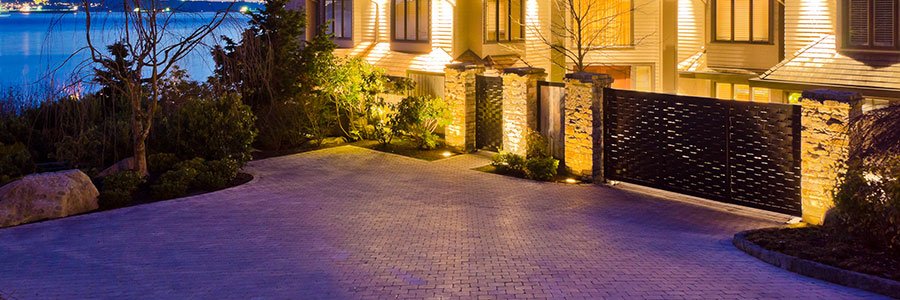
Home and Commercial Driveway
The interlocking concrete driveway has become the envy of neighbors and passers-by, advancing opportunities for landscape contractors who know how to leverage these and the many other factual selling points. Contractors should tell prospects that a properly installed, interlocking paver driveway won’t crack or heave, will not be affected by the continued application of deicing salts, and require little or no maintenance compared to other pavement types. Because they are made of high-density concrete, surface stains are minimized.
Maximizing the driveway’s life cycle is also valuable to any homeowner concerned about improvement investment worth.
Can interlocking concrete pavers be installed on an existing pavement like asphalt or poured concrete?
Yes – This kind of installation is referred to as an “overlay.” Standard specifications for installing an interlocking paving stone system over an existing asphalt or concrete driveway do not require a gravel base, except where the driveway meets the street and/or garage apron.
Can an interlocking concrete pavement be installed on an inclined driveway?
Yes – Like asphalt, an interlocking concrete paver system is a flexible (non-rigid) pavement. Set in the sand and with correctly installed base and bed preparation and also proper edge restraints, the pavement will remain stable – even on a slope.



